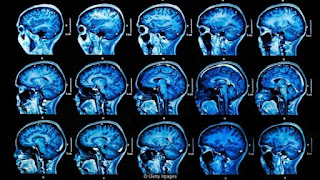Parkinson’s Disease Gene Therapy Clinical Trial Launched in UK
A gene therapy for Parkinson’s disease developed by Swiss
biotech Axovant has been used on the first patient in a Phase I/II trial at
University College London.
Parkinson’s disease is a neurodegenerative disease, caused
by a lack of the neurochemical dopamine in regions of the brain handling motor
functions causing debilitating symptoms such as rigidity and tremors.
Gene therapy has the potential to deliver therapeutics to
specific areas of the brain, which would cause fewer side effects, such as
hallucinations and compulsive behavior, than current treatments.
Axovant’s gene therapy is designed to make the affected
neurons produce dopamine by delivering the genetic instructions for making
dopamine. The treatment is surgically injected into specific regions of the
brain, and theoretically lasts for years after surgery.
The first part of the trial will test the safety of
different doses of the therapy. The second part will test its therapeutic
effect on motor symptoms of the patients compared with a sham operation.
Preliminary results are expected in 2019.
“While we do not yet know if it is effective, it is hoped
this therapy will provide patient benefit for many, many years following a
single treatment,” stated Thomas Foltynie, the trial’s lead clinician at UCL.
The gene therapy was originally developed by Oxford
Biomedica, and licensed to Axovant earlier this year. Notably, like all
treatments for Parkinson’s disease at present, it intends to alleviate the
symptoms of the disease, but does not stop the disease progression.
University College London is also working with Scottish
biotech Synpromics to develop a gene therapy for young-onset Parkinson’s
disease. In the US, Voyager Therapeutics is also carrying out a Phase I trial
of a gene therapy that makes oral treatments for Parkinson’s disease more
efficient.
One hope for slowing the progression of Parkinson’s disease
is in Phase I/II. The US company, Sangamo Therapeutics, is testing a gene
therapy designed to combat neurodegeneration by making brain cells express
chemicals that protect neurons from damage.
Originally published in Labiotech.




GREETINGS everyone out there.. my name is (Robert Lora) I am from CANADA i will never forget the help Dr Ogudugu render to me in my marital life. I have been married for 8 years now and my husband and i love each other very dearly. After 6 years of our marriage my husband suddenly change he was having an affair with a lady outside our marriage, my husband just came home one day he pick up his things and left me and the kids to his mistress outside at this time i was confuse not knowing what to do again because i have lost my husband and my marriage too. i was searching for help in the internet, i saw many people sharing testimony on how Dr Ogudugu help them out with their marital problems so i contacted the email of Dr Ogudugu i told him my problem and i was told to be calm that i have come to the right place were i can get back my husband within the next 48hours, to my greatest surprise my husband came to my office begging me on his knees that i should find a place in my heart to forgive him, that he will never cheat on me again, i quickly ask him up that i have forgiven him. Friends your case is not too hard why don't you give Dr Ogudugu a chance, because i know they will help you to fix your relationship with your Ex Partner. Dr Ogudugu his the best spell caster around to solve any problem for you.
ReplyDelete{1} HIV/AIDS
{2CANCER
{3}HERPES
{4}DIABETES
(5}HERPERTITIS B
Email: GREATOGUDUGU@GMAIL.COM
Call/WhatsApp:+27663492930
I can see that you are an expert at your field! I am launching a website soon, and your information will be very useful for me.. Thanks for all your help and wishing you all the success in your business. clinical trial drugs
ReplyDelete